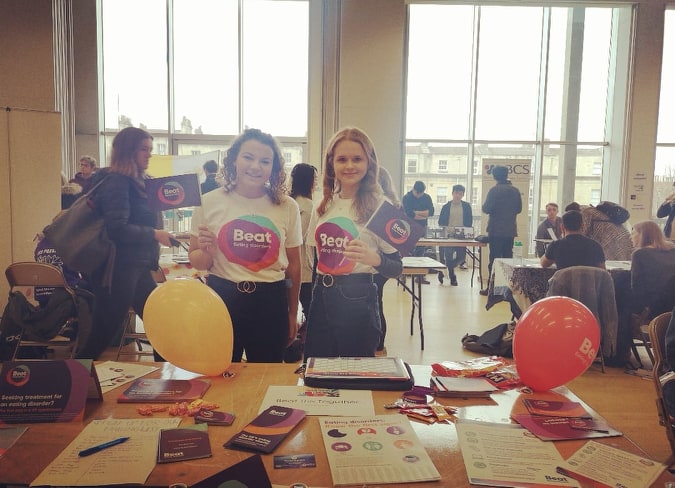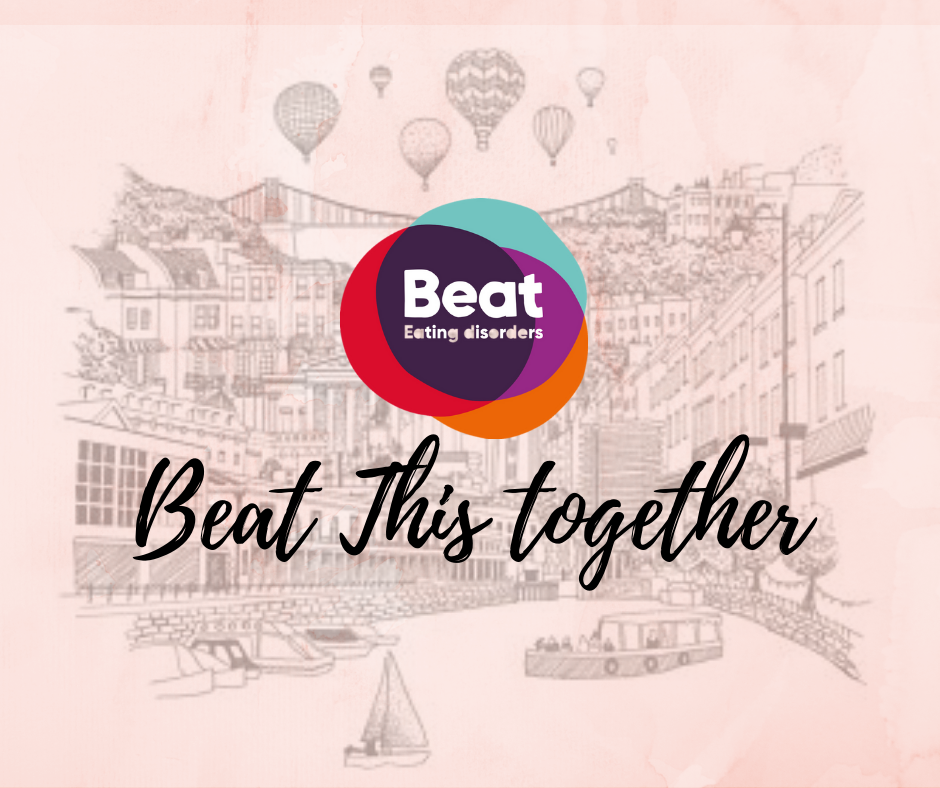By Jasmine Burke, Wellbeing Editor
With Eating Disorder Awareness week taking place from the 25th February to 3rd March, Wellbeing Editor Jasmine Burke interviews Tori Freedman, the president and founder of Beat This Together.
It can be hard starting a new society at university; the student population is incredibly large and getting the word out seems near impossible at times. Therefore, it is important that we bring to light the societies that are doing amazing things to combat different problems faced on our University campus. I spoke to Tori Freedman, position in society about Beat This Together – the new Eating Disorder support group for University of Bristol students.
How it began
The society began in November as a result of multiple discussions surrounding eating disorders that Tori had with a close friend. “We felt ashamed and rather judged for our eating disorders, (and) I realised something was wrong with society's perception of eating disorders and mental health”.
Anorexia has the highest mortality rate of any mental health diseases and I strongly believe this is linked to the blame culture around it. People do not CHOOSE to have eating disorders, and this needs to be recognised and accepted.
Despite being a mental illness, eating disorders are still commonly misrepresented as a ‘choice’ made by teenagers that want to lose a few pounds. While many of us know that this is not the case, it still leads to many people – whether they are experiencing these disorders or are in recovery – hiding this big part of themselves out of a fear of judgement. Tori is extremely determined to change this perception, noting that “Anorexia has the highest mortality rate of any mental health diseases and I strongly believe this is linked to the blame culture around it. People do not CHOOSE to have eating disorders, and this needs to be recognised and accepted.” Tori’s hope is that by openly talking about eating disorders, the support group will have a chance to make a real difference, “bringing eating disorders out of the shadows and shining light on these less than glamorous mental health diseases.”
What they plan to do
Beat This Together are hoping to tackle eating disorders from multiple angles. They have partnered with Beat – the UK’s largest Eating Disorder charity – so that half of their committee has been able to receive training as official Beat campus reps. This year, they plan to focus on four main things:
1) Fundraising
This is to help support the work that Beat does, like their meeting groups (One of which is specifically for students), one-to-one phone services and work campaigning at the forefront of important issues such as increased eating disorder training for doctors and removal of the minimum weight requirement for eating disorder treatment. They plan to fundraise in as many ways as possible, “from bake sales to bucket shaking to club nights to themed pub quizzes.”

Photo by Epigram / Tori Freedman
2) Directing
Despite receiving training from Beat, Tori is aware that they are not qualified counsellors. “Whilst we cannot offer counselling/support ourselves to those battling an eating disorder we certainly can point them in the right direction. We have worked hard to educate ourselves on the best services available whether that be through Bristol university or through the community or private services available in Bristol.”
They are hoping to circulate an information sheet with the list of services through accommodation and University buildings. However, you can also ask them for one directly.
3) Raising Awareness
One of Tori and the group’s biggest goals is to bring Eating Disorders into the limelight and remove the taboo surrounding them by placing them in normal conversations. Tori believes that it is invaluable, stating that “Not only is it a great part of recovery to be able to speak openly about your experiences but also it reminds others that they are not alone whilst battling this very isolating disease.”
4) Educating
What I found particularly proactive, is that they plan to deliver education and training to those in patient-facing roles – namely dental and medical students who currently receive little to no training in these areas. They also want to go further than that, going into schools and educating people as “Many children and teenagers are unaware what an eating disorder is, and hence cannot recognise that they have ever developed one themselves.”
Eating Disorder Awareness Week
With Eating Disorder Awareness Week coming up from 25th February to March 3rd, Beat This Together have arranged a timetable full of activities for people to take part in: from a 3km walk and talk, to a bloc climbing session and a body confidence bake sale. However, the activities will not just be confined to this week! Tori and the team will be busy throughout the term:
“We plan to have regular slots to visit local schools and talk to children about eating disorders, we wish to run talks for medical students who receive far too little education in such an important topic, we are taking part in Galenicals (Medical) Welfare Week, we will continue to run fundraising events throughout the year, and for members we will be running events to promote a positive mental health such as a pottery painting session for those who have helped run EDAW, led yoga sessions and pub socials to give everyone a chance to chat to others who are passionate about the same cause.”

Photo by Epigram / Tori Freedman
Joining in
Tori is very eager for others to join in, believing that as the society it so new, “our society members really have an invaluable chance to mould this society and control the shape it takes on.”
Tori also wanted to clarify that “this is NOT a group just for those who have suffered eating disorders themselves and nor is this a support group for those currently struggling.” Though they obviously attract those with first-hand experience, they also attract many people who have friends and family who have suffered from eating disorders, as well as members who have no experience at all but want to get involved with a good cause. They are open to all and encourage as many people as possible to join. After all, as Tori said, “To think that your work as part of a University society could change the lives of so many is a really special thing to be a part of (and absolutely fabulous for growing your CV!)”
Contact Details
bttbristoluni@gmail.com
Click here for their Facebook page
And feel free to donate by clicking here
Membership is only £4 for the whole year and they will be giving everyone £5 towards pottery painting along with other free activities.
Click here to buy a membership
Once you have bought membership, apply to be part of their closed Facebook group for 2018/2019 by clicking here
Featured Image: Facebook / Beat This Together
Do you know of any other mental health societies that deserve more recognition? Comment below or get in touch!









